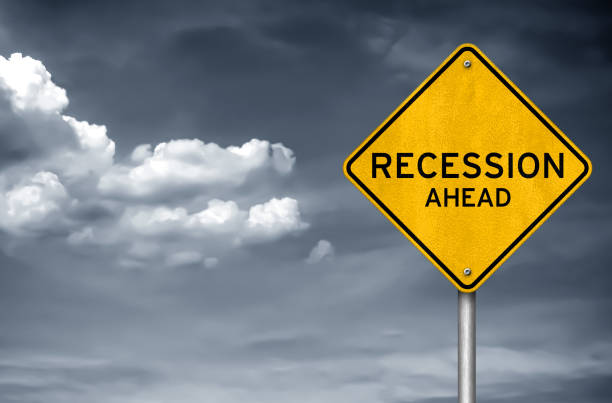Are We Heading Into a Recession?
Everyone and their grandma is talking about an imminent economic recession right now, and it does seem frightening. Even as I write this, I can just feel my entrails shivering in a cold sweat. Jokes aside, it would be wise of us to not take everything at face value when we read articles or opinion pieces on the Internet. Yes, we've all seen those sensational headlines that warrant some concern, such as the recent tech sector layoffs or Prime Minister Lawrence Wong warning that there is a multitude of potential uncertainties faced by the economy in his Singapore Budget 2023 speech. In this article, I'll be tackling the big questions that are on everybody's mind:
Are we seriously heading into an economic recession? Or can everybody's concerns be dismissed as overblown pessimism?
Firstly, I just want to point out there's actually no consensus on what constitutes a recession. Yes, that recession definition of having two or more consecutive quarters of negative GDP growth you were taught in H2 Economics class isn't commonly accepted. What a recession means is still widely debated by economists all over the world. However, for simplicity's sake, we'll go with "A period of decline in economic activity" which I suppose, is basically what you learnt in JC. In terms of the data and points I would like to discuss, I'll be using US statistics. After all, the US does constitute more or less 24.4% of the global GDP, the largest contributor. Not to mention, US statistics are quite accessible and well-documented on the Internet.
With all that out of the way, let's address one of the most hyped economic indicators within the investing world: The Inverted Yield Curve
If you're a frequent browser on r/WallStreetBets, the notorious online forum infamous for young "investors" fuelling their gambling addictions by YOLOing their life savings, then you may have seen a few posts propping up regarding an inverted yield curve. What does it actually mean?
You see, yields are the annual percentage amount of a bond's principal that is paid as a coupon by the borrower to the lender, whereas maturity is the duration till the principal is required to be paid off. Usually, if you plot bonds of differing maturity onto a graph, it'll look something like the above green line, ceteris parabus. The higher yield as maturity increases reflects the additional risk taken by the lender as maturity increases, since anything could happen, as time passes, there is a higher likelihood of default/opportunity cost.
However, an inverted yield curve is when the opposite happens. Investors are placing a premium on long-term bonds. Why did this happen? The fact is, investors are anticipating future interest rates to be lower than that currently, which means everyone is rushing in to lock in these high rates right now. With the prediction that rates will lower, it indicates a prevailing sentiment that the Fed might have to step in with expansionary monetary policy to combat a recession. It could also signify that investors are shifting their funds from riskier equities to less risky bonds.
Typically, we use the difference between the 10 year bonds and short term bonds (3 months, 6 months, 1 year) to see if a yield curve is inverted. As you can see, the 10 year US government bond yields 3.99%, lower than any of the short term government bonds such as the 12 month's 5.16%.
Typically, an inverted yield curve signals an incoming economic recession, and it's been scarily accurate. Almost every yield curve inversion has preceded a recession by approximately 1 year since the 1960s, except for once. Nevertheless, longer periods of yield curve inversion have been shown to be associated with higher chances of a recession. Just do take note that an inverted yield curve does not cause a recession, and is merely an indicator and represents investor sentiment. I know investors are hardly the most reliable people, but you can't simply dismiss this glaring warning sign.
Next, we can't ignore the current inflationary environment that we're facing today.
The consumer price index has been skyrocketing, and according to Jerome Powell, it very well may be mainly attributed to a red-hot labour market causing demand-side inflation. The Federal Reserve's main goals are to minimise unemployment and inflation... but if unemployment is getting in the way, then you can bet that Powell will hike rates to cool down the labour market. However, despite the recent slew of rate hikes, US unemployment has remained at historic lows of approximately 3.4%.
This might result in Powell becoming more aggressive to reign in inflation, raising rate hikes even further. With elevated interest rates, consumers will have less borrowing power and save more due to heightened saving interest. Additionally, companies may find their return on investment with leverage simply not worth it. This further discourages spending, leading to contracting economic activity.
You may be wondering why consumers are spending more than ever recently then. The probable reasoning is that consumers expect inflation to further accelerate, eroding their purchasing power. Naturally, consumers spend more to buy more goods in advance, exacerbating inflation. Could this result in the Fed overreacting and raising interest rates by too much in response to this pushback from inflation?
It's natural to think: "What do you mean by too much? Isn't inflation worsening?"
Correct, inflation is indeed worsening, but so is the average consumer's financial health. The common consensus is that the current high inflation is demand-side and can be attributed to excessive consumer spending... but what if the average consumer can no longer spend?
Furthermore, Average Household Debt to GDP ratio is rather high. You may be thinking it's not too bad, but don't forget that GDP may be artificially inflated due to the excessive expansionary monetary policy implemented over the past few years, which may indicate that debt may have been insidiously creeping up...
Let me pose you a question: What would happen when consumer savings run out, and people cut back on spending? Yet, the Fed aggressively hikes interest rates, increasing the unemployment rate and increasing the cost of debt. With reduced average income, coupled with low savings and higher interest rates, consumers will certainly have to cut back on spending.
So here are my closing thoughts...
I think an economic recession will be rather likely sometime in late 2023 to early 2024. In fact, a recession typically occurs after the Fed pivots in response to dire economic conditions. Overall, a recession may be caused by the confluence of factors discussed in this article (and outside as well). I'm certainly betting on one, although it isn't exactly contrarian.
Author's Note: I hope you enjoy this macroeconomic analysis. I'm not yet familiar with how I should tackle such issues, but this is my attempt nonetheless. Additionally, blog posts may slow down soon due to my upcoming enlistment, still stay tuned for future posts though!
Think this article is something you'd want more of? Subscribe here using your email to get notified about my latest blog articles, I'd truly be grateful!
Disclaimer: Please take everything published within this blog with a pinch of salt. Nothing I say here should be misconstrued as any form of financial advice whatsoever. In fact, I am probably the absolute last person you should approach for any sort of advice. All self-computed figures are calculated to the best of my ability, but I cannot guarantee they are 100% accurate, and I am not liable for any investment decisions made based on my content.
Thank you for reading my blog, and I hope you have learnt something, no matter how seemingly minuscule, ciao!










Comments
Post a Comment